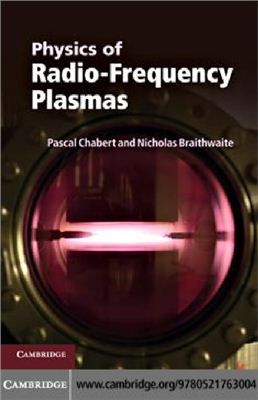Cambridge university press, Cambridge, 2011, 385 p.
Low-temperature radio frequency plasmas are essential in various sectors of advanced technology, from micro-engineering to spacecraft propulsion systems and efficient sources of light. The subject lies at the complex interfaces between physics, chemistry and engineering. Focusing mostly on physics, this book will interest graduate students and researchers in applied physics and electrical engineering. The book incorporates a cutting-edge perspective on RF plasmas. It also covers basic plasma physics including transport in bounded plasmas and electrical diagnostics. Its pedagogic style engages readers, helping them to develop physical arguments and mathematical analyses. Worked examples apply the theories covered to realistic scenarios, and over 100 in-text questions let readers put their newly acquired knowledge to use and gain confidence in applying physics to real laboratory situations.
Low-temperature radio frequency plasmas are essential in various sectors of advanced technology, from micro-engineering to spacecraft propulsion systems and efficient sources of light. The subject lies at the complex interfaces between physics, chemistry and engineering. Focusing mostly on physics, this book will interest graduate students and researchers in applied physics and electrical engineering. The book incorporates a cutting-edge perspective on RF plasmas. It also covers basic plasma physics including transport in bounded plasmas and electrical diagnostics. Its pedagogic style engages readers, helping them to develop physical arguments and mathematical analyses. Worked examples apply the theories covered to realistic scenarios, and over 100 in-text questions let readers put their newly acquired knowledge to use and gain confidence in applying physics to real laboratory situations.

